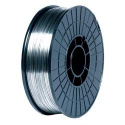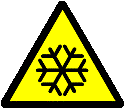|
I'm thinking about going back to school and getting my CS degree, and I want to see what some possibly-fellow engineers thought about this. I started undergrad initially as a CS major but switched to Econ about halfway through. I ended up going to law school. I have my own law office right now and it's okay, but I'm not real pleased with my earning potential at the moment compared to my work and stress level and it doesn't look like it's going to get a lot better with the legal market the way it is. So, I'm thinking about going back to finish my CS degree. I'm not too worried about debt because I can do some part-time work while in school, and I'm not worried about working too many hours because of what I can bill per hour. I got straight As in the courses I did complete and so my GPA should be great if the school allows my GPA to transfer with my credits, and I can complete the degree within 2 years I think. I know there's a market for a job in CS if I wanted, but have any of you CS/CE guys seen any jobs that mix CS and law (besides the obvious patent attorneys)? What's the earning potential for a CS major right out of school in, say, Portland/Seattle? Even if there wasn't a job that mixed the two degrees, would it matter maybe for certain promotion tracks, like compliance or management or something?
|
|
|
|

|
| # ? May 16, 2024 00:22 |
|
grover posted:The thing about the FE is that every question on it is trivially easy... if you know how to do it. If you can't answer the 2 minute problems in 30 seconds, you're doing it wrong. The breadth of the test is so expansive that it's difficult to know how to do it all, though. Everyone gets their area of expertise as a bunch of gimmes, but knowing all the OTHER areas is tough- that's why there's a 40ish% failure rate. I took it 8 years after I graduated college, way overprepared, and left about 2 hours early, scoring well into the 99th percentile when I took it. But I recognize that it's a bitch of a test- I mean, it's 8 hours of marathon test-taking. You got your actual score back? I just got a letter that said "Congrats, you passed". I would say that the FE isn't hard, it is however exhausting. Tip: see if you can get an explanation of how to do "easy" problems in the various areas from an upper class man in whatever engineering discipline is. Basically everything on the exam is easier than you want to make the question; that in and of itself makes things harder (if that makes sense),
|
|
|
|
Signed up to get my AA in Mech Eng. to go to UF or UNF yesterday Any ideas to pick for a concentration or specialization? Or just go general and learn at work? @Mashed Yeast - Ever considered its where you work and not the kind of job in and of itself? A smaller company that wasn't nearly as bleeding edge might be a lot more laid back, plus with your experience you would probably be 'hot poo poo' to interview with, so to speak.
|
|
|
|
hobbesmaster posted:You got your actual score back? I just got a letter that said "Congrats, you passed". I would say that the FE isn't hard, it is however exhausting. Tip: see if you can get an explanation of how to do "easy" problems in the various areas from an upper class man in whatever engineering discipline is. Basically everything on the exam is easier than you want to make the question; that in and of itself makes things harder (if that makes sense), grover fucked around with this message at 11:47 on Nov 5, 2009 |
|
|
|
Groda posted:nuclear/mechanical/process You did get the process right, one of my coworkers said the degree approval process was a bit of a PITA though.
|
|
|
|
Thanks for getting back! Where was your coworker from? How long after getting his degree did he have it approved?
|
|
|
|
grover posted:Yes, I was not expecting it. I got my score back from the PE, as well. Only a few states did this, and only for a few years. I'm glad I was one of the lucky few! NCEES says they don't like disclosing scores because they designed the exam to be a measure of minimum competency, and don't want to see people try to use it as a sort of metric to compare two engineers' skills. I can see that, you cheated by having the perfect major for the FE.  The typical EE's schooling does not cover 2/3rds of the general section of the FE, so it wouldn't make much sense to compare their scores to a ME or Civil to evaluate who the best engineer was. I'm sure a large company's HR dept would love to do that though. The typical EE's schooling does not cover 2/3rds of the general section of the FE, so it wouldn't make much sense to compare their scores to a ME or Civil to evaluate who the best engineer was. I'm sure a large company's HR dept would love to do that though.
|
|
|
|
I am in my last year of Computer Engineering at University of Illinois Urbana-Champaign. My time here has taught me that engineering is not a major that suits me well. I dont have any ambition or motivation because in my eyes a career is just a way to make money for the real part of my life, the one with a family and happy times. As such I have a pretty lovely GPA 2.3 and I am currently working in tech support for a research building on campus and I love it. Even with insane coursework and getting poo poo grades on exams and such I am very stress free and happy. The thing is I overall like the idea of working in tech support. However it seems that every post here about getting stuck in IT is about how horrible it is. Due to being at a school that is known for producing the best, its hard to find an internship for a decent but not amazing engineer. I figure that a computer engineering degree from a top 5 school would be able to land me a decent IT job somewhere along with my soon to be 2 years experience while in college. Am I selling my soul or something by wanting to work in IT when I get out of here?
|
|
|
|
Groda posted:Thanks for getting back! One from Brazil, one from India. The Indian got his degree approved almost instantly, the Brazilian had a bit of a hard time, because he was 10+ years out of school by the time he took the FE.
|
|
|
|
Thunder from Down Under posted:I am in my last year of Computer Engineering at University of Illinois Urbana-Champaign. My time here has taught me that engineering is not a major that suits me well. I dont have any ambition or motivation because in my eyes a career is just a way to make money for the real part of my life, the one with a family and happy times. As such I have a pretty lovely GPA 2.3 and I am currently working in tech support for a research building on campus and I love it. Even with insane coursework and getting poo poo grades on exams and such I am very stress free and happy. Not exactly accurate. I had a lovely GPA from a top 15 engineering school and it was a bitch finding a job. Even an IT one. GPA is stressed so much at every place I tried to land an interview. So many IT places pinned me as over qualified for the position. The ones that were higher difficulty also cared about GPA. I felt like even having an engineering degree from a good engineering school was basically useless with a low gpa.
|
|
|
|
KaiserBen posted:One from Brazil, one from India. The Indian got his degree approved almost instantly, the Brazilian had a bit of a hard time, because he was 10+ years out of school by the time he took the FE. Was the fact that the Brazilian's papers weren't originally in English a big problem?
|
|
|
|
I'm an electrical engineer, with a masters degree from uni here in the UK. I guess my grades were reasonably good, but nothing spectacular! However I lucked out and I've just started a phd working on EFDA-JET (Joint European Torus). JET is a nuclear fusion experiment based in Culham, Oxfordshire, currently the biggest experiment of its kind in the world, so I'm told. Its a great place to work, a pleasant atmosphere and lots of nice people. The only issue for me is the commute in to work as I don't live very close. I've been getting up between 4.30 and 5.00 every day to get in. I'm working on the neutral beam heating system, which fires deuterium into the plasma to heat it up basically. I'm still very much in the learning phase, figuring out the details of how the machine works. It *is* complicated what looked at all together, but really the individual components it's comprised of are in themselves simple, so I guess it's not so bad. I think people think engineering is much harder than it really is. If you're considering studying it at uni, don't be put off by horror stories of hard maths and all night study sessions (they are not mandatory). Personally I find most new maths difficult when I first encounter it, but as with many things, after a bit of practice I find it easier. If you think it's something you'd enjoy and you're willing to show up to class and do the work, then you're 99% likely to do fine. The job market in the UK is almost certainly different than in the USA, but the people I graduated with by and large did not struggle to find work, I'd say >80% of the people I kept in touch with were employed (or were soon to take up work) pretty quickly. The thing with the UK system is that we don't have a GPA, just somewhat broad classifications. The brightest people tend to get a '1st', the next step down get a '2:1' - like me, the next is a '2:2'. Anything below that is pretty crap and not anything to be proud of. If you get a 2:1 or above in the UK you can be fairly confident of getting a decent job, as this is what most companies tend to list as their requirements. With a 2:2 you may struggle a bit more, but it's not the mark of death that a low GPA seems to be in the US, particularly if you get a masters degree too.
|
|
|
|
Kippling posted:I think people think engineering is much harder than it really is. I think some people have no interest in how things work and don't want to tear apart everything to see how it works. To these people engineering must be incredibly difficult.
|
|
|
|
It's not a matter of difficulty for most people but time commitment. While there are some people who actually struggle with the material and put in a lot a time, I think its hard to do well and put in a little time. Looking back, I could have done really well and understood everything if I spent more time. I found a lot of things hard because I would rarely go to class and usually put minimal effort into homework. It's hard to study so loving much when everyone is out having fun every night. If I could do it again, woulda definitely been a math major or stat/econ.
|
|
|
|
Any clue about how to find internships while you're in an AA program at a community college to transfer to a University with? I can't afford a University right now, no way no how, unfortunately. And if nobody here knows, where exactly do you go to try to find out information about concentrations? Or should I just not even worry about it.
|
|
|
|
I am an Instrument Engineer for a Oil Service Company in the UK. My first two year grades were poo poo - but I managed to turn it around and graduate with an Upper Second Class Masters (Atilla or Trevor (2:1)). I love my job, I get to design Instrumentation for offshore platforms. Offshore 4 times in the past year in the North Sea. But the company I work for has cut down the number of graduates it hired over the past 2 years due to the downturn in the oil price. The way our company works is that the Operators (Shell, Exxon, Chevron, Conoco, BP) pay us to do their construction offshore.  Click here for the full 1023x655 image. Where I started, Ninian Central - the firebreathing beast of the West Coast of Scotland. /edit - I loved that platform
|
|
|
|
Oodles posted:I love my job, I get to design Instrumentation for offshore platforms. What exactly does that involve? What's your day to day routine?
|
|
|
|
hobbesmaster posted:I think some people have no interest in how things work and don't want to tear apart everything to see how it works. To these people engineering must be incredibly difficult. Not all engineering is mech/elec... I have have never 'torn something apart to see how it works'. There are a lot of engineering disciplines out there. I also agree that being an engineer is easy. My job is really pretty much design, make clients happy, answer stupid construction questions...repeat.
|
|
|
|
spwrozek posted:Not all engineering is mech/elec... I have have never 'torn something apart to see how it works'. There are a lot of engineering disciplines out there. I don't like tearing things apart either, but I do enjoy mixing chemicals together and watching what happens (of course safely and following SOP).
|
|
|
|
Kippling posted:What exactly does that involve? What's your day to day routine? Typical Day; Get in at 7:30 (we work flexi-time, and that time co-incides with when my train is). Boot up the Computer to see if there are any emails which have come in from the platforms over night. Because the platforms work 24/7 there could be issues arising during the night which we would need to provide clarification on. But the usual channel is through the Onshore Construction Manager. If there are no screamers from the night before, its usually a case of marking up drawings (Loop Drawings, Termination Details, Piping and Instrumentation) and giving them to the designer who puts them into CAD, so they boys offshore don't have to interpret my scribbles. If there was any screamers, then it would be a case of looking out the drawing that is causing them problems, and phoning them up to find out where the confusion lies. The problem with my job is that if I am doing a design I simply can't "walk into the plant" because it takes 6-12 weeks just to go through the planners - which is a pisstake anyway, last time they just forgot to book me onto the chopper. Arses! Sometimes there is fun meetings with the client, like last week I had a meeting because one of the projects shut the platform down - so it was a lessons learned into why it broke, what could be done next time to prevent that happening. Its a fun, and not stressful job. The people in the office make it fun - as they are mostly ex-offshore tech's who did a degree they are very sarcastic - its ace. But the downsides are the politics, so-and-so kissing up to such-and-such business manager, bloody bollocks stopping the jobs from going out the door on time. Its mostly the planners, all they do is move a bar along a screen. Job would be easier without them!
|
|
|
|
Pfirti86 posted:I don't like tearing things apart either, but I do enjoy mixing chemicals together and watching what happens (of course safely and following SOP). Always pour the acid into the water, son.
|
|
|
|
Engineer is Credit to team!
|
|
|
|
Bad WolfZxc posted:Engineer is Credit to team! I would be lying through my white face if I didn't say that was at least somewhat of a motivator to go M.E. I still can't pick a concentration or get any direction though 
|
|
|
|
Svartvit posted:Always pour the acid into the water, son. Unless you're making Piranha, then you add the hydrogen peroxide to the sulfuric acid.
|
|
|
|
Svartvit posted:Always pour the acid into the water, son. But water into acid makes such cool explosions! spwrozek posted:Not all engineering is mech/elec... I have have never 'torn something apart to see how it works'. There are a lot of engineering disciplines out there. Well yeah, substitute tearing stuff apart with whatever your chosen specialty is. Be that looking through buildings to see how they're constructed or how a certain plastic you're buying is made or what have you.
|
|
|
|
hobbesmaster posted:But water into acid makes such cool explosions! Great job, history channel.
|
|
|
|
Groda posted:Was the fact that the Brazilian's papers weren't originally in English a big problem? Not significantly. They're used to dealing internationally, so translation isn't generally a huge problem. Speaking of international work, I'm off to a field assignment in ~8hr. Steel mill shut down for a 10 day maintenance + retrofit, and I get to do the PLC work. I'm going down there for the outage + a few days afterwards to make sure production gets restarted without any trouble. The glamorous life of a field engineer!
|
|
|
|
Muir posted:Unless you're making Piranha, then you add the hydrogen peroxide to the sulfuric acid. I had to make that once to clean some glass coverslips, and I hated every second of it. That stuff scares me. Still, for acids you can't beat aqua regia (unless you're made out of tantalum or something). Foyes36 fucked around with this message at 04:13 on Nov 9, 2009 |
|
|
|
Pfirti86 posted:Still, for acids you can't beat aqua regia (unless you're made out of tantalum or something). I use that stuff at work and it's not that bad if you know what you're doing and observe the proper safety protocol Scariest chemical I've had the pleasure of encountering is phosgene. Only substance I've used that has an NFPA health rating of 4. If you smell it, you're already at 4x the exposure limit and your lungs might liquify! You have to wear a detection badge if you're using it. If you couldn't already tell, I got my degree in chemical engineering. Now I do research work with catalysts in the energy industry. If you have any questions, ask away!
|
|
|
|
Not sure if this has been answered yet, but I got a question for Electrical Engineers. Basically, I'm on the track, just started (currently in Circuit Analysis) had to purchase a lab kit, at a overinflated price, and been doing the labs. All pretty basic stuff, but I feel like they don't really convey what I should be learning as a EE. So question is, what is some good books for at home projects to help learn proper techniques and skills? All the books of projects I've seen so far seem to assume that you already have your degree (or drat close to it) and have in depth knowledge of the material to build rather complex projects. For clarification, what are some easy, good projects for a beginner to use to gain better understanding of the material. Books and kits to look into. edit: Also I got a test tomorrow on Nodal/Mesh analysis, superposition, Thevenin and Op Amps. Anyone want to take it for me?
|
|
|
|
Kid Awesome posted:Not sure if this has been answered yet, but I got a question for Electrical Engineers. I have no answer other than pick up a soldering iron and do something. Build a robot, a speaker, a HAM radio or whatever. A good start with electronics would perhaps be to get an Arduino and do something. I built robots myself, it involved lots of googling and trial and error. You could start here and/or here.
|
|
|
|
At my school (and likely in most others) the job placement program is heavily geared towards large companies, industry types, and 'career-oriented' opportunities. Most of the companies at job fairs seem to be looking for semi/permanent employees, and this seems to be where most of my peers end up. A general attitude I get is that most people are looking for jobs where they will always be advancing and always be making more money. I prefer smaller companies and/or a small amount of 'career commitment'. I would rather work for many different companies, or, say, work a year or two at a time and take some amount of time off to pursue personal projects. I want to travel, for example. Moving up and advancing in salary is not important to me. If I can find a job that gives me great flexibility, I would be content with a salary that is much less than the average engineering starting salary. However, I do enjoy technical engineering and getting my hands dirty. I can never seem to find good answers as to whether this is a good idea, or even reasonable -- always, "well, it depends on the company," or "you just need to find someone that is a good fit for you." No information on whether these opportunities exist or how common they are or how to look for them. My current GPA is about 2.6. I'm a transfer student, I have an AA with about 1.5years left in the mechanical engineering program. I have a decent resume, besides the GPA: two years managerial experience (contract staffing) in a manufacturing facility, paid research, engineering related extracurriculars, a good set of technical and computer skills. But I don't do terribly well in the classroom and don't realistically see my GPA getting any better than 3.0 by the time I graduate. Considering my resume/GPA and what I'm looking for in a job, anyone have similar experience or ideas about what my job market would be like? What are reasonable expectations about career freedom? Dads fucked around with this message at 10:35 on Nov 9, 2009 |
|
|
|
Kid Awesome posted:Not sure if this has been answered yet, but I got a question for Electrical Engineers. Think of something you have interest, maybe something you dreamed of and always wanted to build. The best learning (for most, I think) comes from hard-earned experience. Instead of lab books giving you problems and nudging you in the right direction, if you think of your own problem, you will be challenged to find your own way to the solution. I don't think you'll learn a lot buying a crystal radio kit. A friend of mine was working on a project that used LiIon batteries, and he needed a way to determine which battery to use and how to charge them based on the way the batteries were discharged. So, knowing very little about circuit design and battery operations, he asked around about the principles, grabbed some basic books, and designed a circuit that would discharge the batteries and used logging software to monitor the output. I thought that was a noble solution. Also, with circuit analysis, the most important thing is to understand the basics in a way that makes sense to you, and use that understanding to make a consistent method to solve problems. The way the math works, that basically means pick a sign convention and stay with it. It's just systematic method.
|
|
|
|
Thanks for the advice so far. I should clarify what I mean by the lab kit I bought, it was for the lab portion of my class. Not a kit to build something at home with. Protoboard Wire Cutter Wire Stripper (though I can't seem to find where the hell I put them :\ ) Screw Driver Alligator, Banana, BNC cables Cheap bastards couldn't even throw in some wires and resistors I guess what I'm looking for in a nutshell is something like a erector set like kit with a focus on electrical fun. With details, showing the math/engineering principles behind certain aspects. Does this make sense at what I'm getting at? Something that shows the basics and how to apply them in a practical manner. Seems like one would get a better understanding of the principles if they were able to put them into use, rather then doing practice problems out of a book. Also gently caress Thevenin and Norton Kid Awesome fucked around with this message at 11:15 on Nov 9, 2009 |
|
|
|
plester1 posted:I use that stuff at work and it's not that bad if you know what you're doing and observe the proper safety protocol
|
|
|
|
Kid Awesome posted:Thanks for the advice so far. I should clarify what I mean by the lab kit I bought, it was for the lab portion of my class. Not a kit to build something at home with. I personally haven't tried these but they always looked kind of fun: The "(whatever) for the evil genius" project books. http://www.amazon.com/Brad-Graham/e/B001I9TWTM/ref=ntt_athr_dp_pel_pop_1 Really I should do them some day, but they're lower on the list than a bunch of my other projects. I still have my book on tesla coils waiting to be put to practice. Also: Thevenin and Norton are easy, one is in series with a voltage source, the other in parallel with a current source. Cypress fucked around with this message at 16:42 on Nov 9, 2009 |
|
|
|
grover posted:The scariest I've worked with is Hydroflouric Acid, which also has a 4 rating. It's colorless and odorless. It can't be stored in glass containers because it will dissolve right through glass It can't even be used in quartz containers- solid teflon is used because it's about the only thing that lasts long enough to be of use. Just passing a silicon wafer over the top of an open container is enough to dissolve glass off the surface. It's as powerful an acid as they come, but if any of it slashes on you, you won't feel a thing because the very first thing it attacks is the calcium in your nerve endings. The first indication of a chemical burn is hours later when it's eaten through your flesh and the excruciating pain starts as it begins dissolving your bones. Yeah, we use this in my lab. When I first started working with it I read the MSDS and it scared the crap out of me. Finding out that a chemical which will be a staple of your research for the next 4 to 5 years can dissolve your bones and stop your heart wasn't something I was too excited about. I guess I've become used to working with it by now, though, and just make sure to have an rear end-load of PPE on and lots of rinse steps. Pfirti86 posted:I had to make that once to clean some glass coverslips, and I hated every second of it. That stuff scares me. Piranha's not so bad (especially compared to HF); just don't seal the waste container or it will explode in a shower of broken glass and acid. Yeah, we've had that happen. Muir fucked around with this message at 16:52 on Nov 9, 2009 |
|
|
|
plester1 posted:I use that stuff at work and it's not that bad if you know what you're doing and observe the proper safety protocol Can you give me an idea of what working with catalysts in the energy industry is like. For example, what is it that you are engineering and what is it used for?
|
|
|
|
grover posted:The scariest I've worked with is Hydroflouric Acid, which also has a 4 rating. It's colorless and odorless. It can't be stored in glass containers because it will dissolve right through glass It can't even be used in quartz containers- solid teflon is used because it's about the only thing that lasts long enough to be of use. Just passing a silicon wafer over the top of an open container is enough to dissolve glass off the surface. It's as powerful an acid as they come, but if any of it slashes on you, you won't feel a thing because the very first thing it attacks is the calcium in your nerve endings. The first indication of a chemical burn is hours later when it's eaten through your flesh and the excruciating pain starts as it begins dissolving your bones. When I worked in a nanofab facility as an undergrad, they wouldn't let me do this step. I'm kind of glad because it sounds scary as hell. Dangbe posted:Can you give me an idea of what working with catalysts in the energy industry is like. For example, what is it that you are engineering and what is it used for? My work is sort of a cross between chemistry and process scale-up and automation. A good portion of my days I'm putting on a lab coat and goggles and mixing together solutions, rubbing elbows with organic chemists and materials scientists. Other days I'm putting together production lines and robots with mechanical and electrical engineers. These production lines are scaling up the procedures we've worked out in the lab, so we can make kilograms instead of milligrams of product, or put the catalyst into a usable form like coated electrodes, polymer sheets, or resin beads. Some of the stuff I've worked on includes catalysts for hydrogen fuel cells, lithium ion battery materials, and catalysts for conversion of coal gasification products into other useful commodity chemicals. The actual products just look like black powder, but they all do some special chemical magic with the right reagents.
|
|
|
|

|
| # ? May 16, 2024 00:22 |
|
Kid Awesome posted:Thanks for the advice so far. I should clarify what I mean by the lab kit I bought, it was for the lab portion of my class. Not a kit to build something at home with. http://www.nerdkits.com/ These are pretty drat good, come with some great tutorials online, as well as telling you everything you need to make whatever, and explaining how it works. Another thing I recommend is to get involved with projects. I'm a 2nd Year EE at Michigan Tech with a year of project experience, and plenty of knowledge to show for it. I learned more just dicking around with stuff than I did in some of my classes, and especially the intro labs.
|
|
|
























